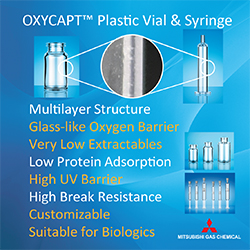Cardiovascular Disease Market: US to Lead Modest Growth; Electronic Cigarettes Could Be the Next Blockbuster
The global market for Cardiovascular Disease (CVD) – composed of Heart Failure (HF), Myocardial Infarction (MI), and Acute Coronary Syndrome (ACS) – is expected to grow at a moderate rate, from $13.7 billion in 2012 to $18.2 billion by 2019, at a Compound Annual Growth Rate (CAGR) of 4.1%, forecasts business intelligence provider GBI Research.
The company’s latest report, Cardiovascular Diseases Therapeutics in Major Developed Markets to 2019 – Increasing Prevalence & Promising Novel Drugs Offset Patent Cliff Threat, states that out of the eight major markets (US, France, Germany, Italy, Spain, UK, Japan, and Canada), the US will boast the largest value, from $6.1 billion in 2012 to $8.49 billion by 2019, at a higher CAGR of 4.7%. This growth is partially due to the increase of the treatment population, which is forecast to jump from 14 million in 2012 to 16 million by 2019, at a CAGR of 1.6%. New drugs are also expected to have a positive impact upon the CVD market, including LCZ696 and Serelaxin by Novartis, AZD6140 by AstraZeneca and BAY81-8781 by Bayer.
“Over recent decades, a large amount of research and innovation has been incorporated in the cardiovascular therapeutics market segment. Of the whole pipeline, 37% of drugs are undergoing Phase II and Phase III trials. This indicates a strong pipeline capable of boosting the market in the coming years,” said Bhakti Shah, Analyst for GBI Research.
However, the CVD market is hampered by high costs, with the annual cost of treatment for the three CVD indications estimated to increase from $4,214 in 2012 to $4,876 by 2019, at a CAGR of 2.1%.
“New therapy drugs, such as LCZ696 and Serelaxin by Novartis, are promising upcoming treatments that will be expensive due to their specificity. This will in turn consume a large share of patients’ healthcare expenditure, which is somewhat unavoidable,” added Mr. Shah.
As electronic cigarettes (or e-cigarettes) have continued to attract massive popularity in the US since their introduction in 2007, they could be used to complement giant life science companies’ products in the smoking cessation market, if the technology performs well in existing clinical trials, says an analyst with research and consulting firm GlobalData.
Until 2013, the US e-cigarette market was predominately shared by smaller companies, such as Logic, Njoy, and Vapor. Still, the product has grown so fast that one leading company, V2 Cigs, recently announced that the e-cigarette market surpassed $1 billion in annual sales in 2013.
Additionally, this year marks the entrance of the world’s largest tobacco companies, such as the Altria Group and the Reynolds Group. Most recently, Phillip Morris International announced its plans to enter the market by late 2014.
“It will be interesting to see if any pharmaceutical or medical device companies seize upon this new market opportunity. While this may seem contradictory to these industries’ overall ethos of ‘improving morbidity and mortality’, the perception of e-cigarettes is likely to change over the next decade, should clinical trial results regarding their use in smoking cessation show a similar safety and efficacy profile in the long-term as they have in the short term,” said Joseph Gregory, GlobalData’s Analyst covering Surgical Devices.
In fact, one randomized, controlled clinical trial led by New Zealand researchers found that e-cigarettes were effective, with a similar achievement of abstinence as with nicotine patches and few adverse events.
The analyst goes on to say that e-cigarettes could complement other product types in the smoking cessation market, including nicotine patches, lozenges, and oral medications manufactured by large life science firms, such as Pfizer, GlaxoSmithKline, and Johnson & Johnson.
Additionally, Mr. Gregory argues that the future regulatory landscape of e-cigarettes could favor these companies further. This product category is being closely examined by the Food and Drug Administration (FDA), and it is likely that the agency will begin overseeing e-cigarette manufacturing and marketing in the US, as it already does with other tobacco products.
“If these e-cigarettes are regulated as devices or drugs, they would be subjected to the respective quality standards of each, including clinical trials demonstrating their safety and positive effects in smoking cessation. This would benefit companies in the life science industry, as they are already extremely well versed in the FDA pharmaceutical approval and medical device clearance processes,” Mr. Gregory added.
GlobalData believes that a decision on how to regulate this market could be available in 2014, given that the FDA has already submitted a proposed regulatory framework for e-cigarettes to be reviewed by the US Office of Management and Budget.
GBI Research is a market-leading provider of business intelligence reports, offering actionable data and forecasts based on the insights of key industry leaders to ensure you stay up-to-date with the latest emerging trends in your markets.
For more information, please contact our Press Office on +44 (0)1204 543 528 or at pr@gbiresearch.com.
Total Page Views: 817














